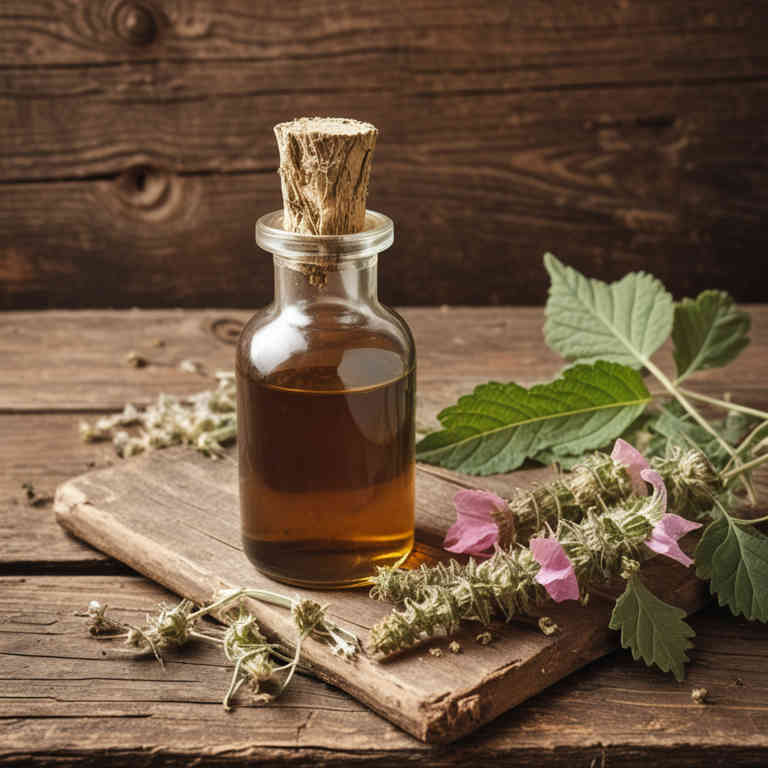Althaea officinalis tincture for medicinal use

Althaea officinalis tincture is a concentrated liquid extract made from the roots and leaves of the marshmallow plant.
It is commonly used in herbalism for its soothing and demulcent properties, which help to calm irritated mucous membranes. This preparation is often employed to treat respiratory conditions such as coughs and sore throats due to its ability to ease inflammation. It may also be used topically to soothe skin irritations and promote healing.
In traditional medicine, it has been valued for its mild, calming effects on the body.
Uses
Althaea officinalis tincture has been used to soothe respiratory and digestive ailments for centuries.
Historically, it was valued in ancient Greek and Roman medicine for its expectorant properties, helping to alleviate coughs and clear mucus from the lungs. Traditional use also extended to treating skin irritations and as a mild sedative. In modern times, it is still used as a natural remedy for cough suppression and to support digestive health.
Its continued use highlights its enduring value in both traditional and contemporary herbal practices.
Benefits
Althaea officinalis tincture has health benefits such as soothing respiratory tract irritation, reducing inflammation, and supporting digestive health.
It is traditionally used to alleviate symptoms of coughs, sore throats, and bronchitis due to its demulcent properties. The tincture may also help ease gastrointestinal discomfort by coating and protecting the mucous membranes. It contains mucilage, which has a calming effect on irritated tissues.
This herbal preparation is often used as a natural remedy for minor ailments related to the respiratory and digestive systems.
Constituents
Althaea officinalis tincture active constituents include mucilage, alkaloids, flavonoids, and tannins.
Mucilage is the primary component responsible for its soothing effects on the respiratory and digestive tracts. Alkaloids contribute to its anti-inflammatory properties, while flavonoids provide antioxidant support. Tannins help in reducing irritation and promoting tissue healing.
This preparation is commonly used for alleviating coughs, sore throats, and gastrointestinal discomfort due to its demulcent and anti-inflammatory actions.
Preparation
To make Althaea officinalis tincture, begin by harvesting the leaves and flowers of the plant, ensuring they are fresh and free from contaminants.
Next, crush the plant material to release its active compounds, then place it in a glass jar and cover it completely with high-proof alcohol, such as vodka or grain alcohol. Let the mixture steep in a dark, cool place for at least four weeks, shaking it occasionally to ensure even extraction. After the steeping period, strain the liquid through a fine mesh or cheesecloth to remove the plant matter, and store the tincture in a dark glass bottle away from light and heat.
This preparation is commonly used for its soothing properties and can be taken internally or applied topically for its anti-inflammatory effects.
Side Effects
Althaea officinalis tincture may lead to gastrointestinal discomfort, including nausea, vomiting, and diarrhea, especially when taken in high doses.
It can also cause drowsiness or sedation due to its mild sedative properties. Some individuals may experience allergic reactions, such as skin rashes or itching, upon contact or ingestion. Prolonged use might result in dependency or reduced effectiveness over time.
It is important to consult a healthcare professional before using this preparation, particularly for individuals with pre-existing medical conditions or those taking other medications.